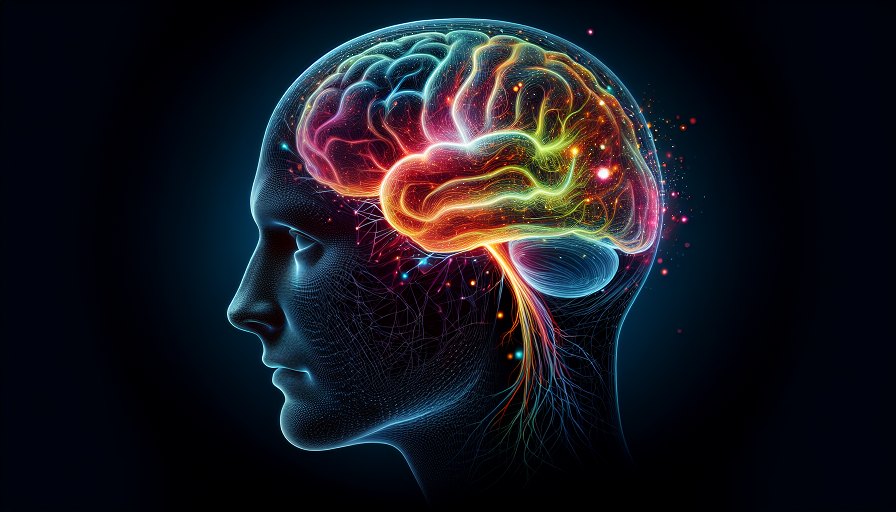
In today’s always-connected digital world, it’s easy to get lost in the endless cycle of doomscrolling. We become trapped, mindlessly consuming content that often leaves us feeling more anxious and scattered than before. But what if we could break free from this cycle and train our brains to focus deeply and effectively instead? Understanding how to shift from distraction to concentration can help you reclaim your time, boost your productivity, and enhance your overall brain health.
Contents
Understanding Doomscrolling
Doomscrolling is a relatively new term that describes the habit of endlessly scrolling through negative news or content online. This behavior might start innocently enough. Maybe you’re catching up on the news or checking your social media feeds. But soon, you find yourself in a rabbit hole of bad news, one that can lead to increased feelings of anxiety, stress, and even depression.
Why is doomscrolling so captivating? Simply put, our brains are wired to seek out information—especially if it feels urgent or important. Unfortunately, with the 24/7 news cycle and the vastness of social media, there’s an almost infinite supply of negative content that can capture our attention. Recognizing that doomscrolling affects both our mental well-being and ability to focus is the first step towards breaking free from its grasp.
The Science of Attention
Our ability to pay attention is influenced by numerous factors, including the amount of information we consume and how it’s presented. When we doomscroll, we expose ourselves to a high volume of jarring or negative information in rapidly changing formats. This overload can lead to cognitive fatigue, making it harder to maintain focus on tasks that require sustained concentration.
On the flip side, deep work requires uninterrupted, focused periods of attention. When we’re constantly distracted by notifications or the temptation to scroll, our brains have a hard time shifting into this productive state. Understanding how attention works helps us develop strategies to protect it from constant digital interference.
Strategies for Reducing Distraction
Transitioning from doomscrolling to deep work isn’t easy, but it’s far from impossible. Here are some strategies you can employ to reduce distractions:
- Establish Tech-Free Zones: Dedicate specific times or places where technology usage is limited or prohibited. This could mean having a tech-free hour before bed or designating your dining room table as a screen-free zone.
- Set Boundaries: Use tools and apps to limit your daily usage on social media sites or to block certain distracting websites while you work.
- Practice Mindfulness: Mindfulness techniques can improve your attention span and help you become more aware of when you’re engaging in doomscrolling. Consider activities like meditation or focused breathing exercises.
- Build a Routine: Creating a structured daily routine can minimize ad-hoc screen time and help you plan time for both focused work and leisure activities.
Creating an Environment for Deep Work
Preparing your environment is just as important as preparing your mind. To foster an atmosphere conducive to deep work, start with a clean and organized workspace. Remove any unnecessary items that might catch your eye and lead to distraction. It’s also helpful to have all the materials you might need nearby, reducing the need to get up and interrupt your flow.
Keep noise to a minimum if possible. If your environment is inherently noisy, consider noise-canceling headphones or instrumental music to help you zone in. Additionally, make sure your seating is comfortable and your screen is adjusted to a comfortable eye level to avoid physical discomfort that might pull your attention away from your tasks.
Boost Your Brain with Supportive Habits
Just as you can train your body through physical exercise, you can train your brain to be more attentive. Here are some habits that may support this goal:
- Regular Exercise: Physical activity is not only good for your body but also beneficial for your brain. It boosts blood flow and can improve both your mood and focus.
- Balanced Diet: Nutrition plays a key role in brain health. Ensuring your diet is rich in brain-supporting nutrients like omega-3s, antioxidants, and vitamins can make a big difference.
- Get Enough Rest: Adequate sleep is vital for cognitive functions. It’s during sleep that your brain processes information and consolidates memories, so make sure you’re getting enough rest each night.
Enhancing Focus with Nootropics
Some people turn to nootropics, also known as brain supplements, to help enhance focus and cognitive abilities. Nootropics can include natural substances like caffeine or ginkgo biloba, which have been shown to improve alertness and memory. While they can be beneficial, it’s important to use them responsibly. Always consider consulting with a healthcare provider before beginning any supplement regimen to ensure that it’s safe and suitable for you.
Practicing Deep Work
Now that you’ve prepared your mind and environment, it’s time to delve into the practice of deep work itself. Begin by setting clear, tangible goals for your work session. Having a specific task to tackle can provide direction and reduce the temptation to fall into a distraction spiral.
Use techniques such as time blocking to segment your day. Allocate fixed periods for deep work and alternate with breaks to avoid burnout. The Pomodoro Technique, where you work for a set time (say 25 minutes) followed by a short break, is another excellent method to maintain focus.
Finally, it’s important to reflect on your progress regularly. At the end of your day, review what you’ve accomplished. This not only helps reinforce your achievements but also highlights any areas for improvement, helping you refine your focus strategies over time.
By understanding the mechanisms behind doomscrolling and attention, implementing practical strategies, and creating supportive habits, you can transform your brain from a distracted state into one capable of deep, focused work. Every small step you take can lead to significant improvements in productivity and quality of life. Embrace this journey towards a more focused, balanced mind.

